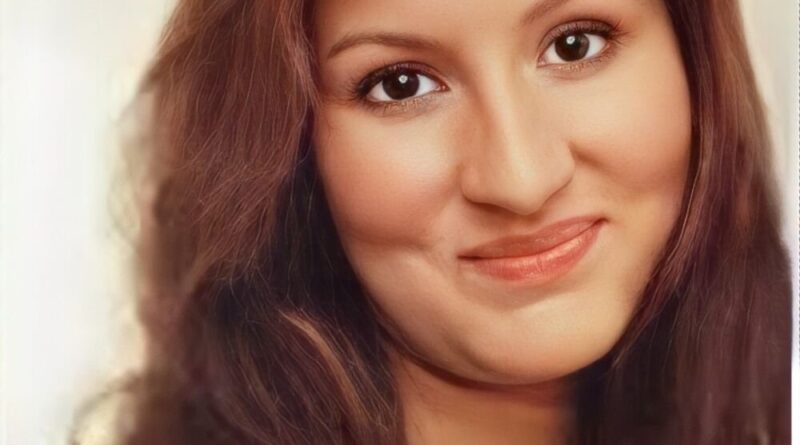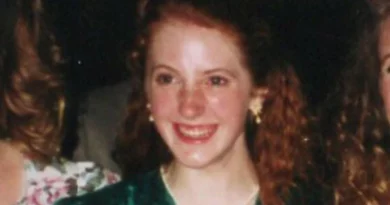Claudia Kirschhoch Disappeared While Walking the Beach in Negril Jamaica
Claudia Ann Kirschhoch was born on February 9, 1971, and grew up in New Jersey with an innate curiosity about the wider world. Even as a child, she devoured travel books and geography atlases, dreaming of the day she could experience distant lands firsthand. She majored in English and journalism, and after graduating she quickly found her calling as an assistant editor at a prestigious travel‐guide publisher in New York City. Her work took her to assignments as varied as the cobbled streets of European capitals, the rain forests of the Pacific Northwest, and the sun-drenched vineyards of California. Claudia’s writing was praised for its vivid detail, clear observations, and infectious enthusiasm, earning her the respect of colleagues and the admiration of readers.
The Press Trip to Havana That Never Was
In late May 2000, Claudia was invited to join a small group of travel writers on a press junket to Havana, Cuba. The trip was organized to commemorate a milestone anniversary of cultural exchange between the two countries. Tickets were booked, itineraries drafted, and expectations high: Claudia was eager to explore the streets of Old Havana, savor Cuban cuisine, and report on the narrow lanes where classic cars belched exhaust alongside vibrant street art. She arrived in Montego Bay, Jamaica, on May 24, intending to connect onward to Havana on May 25.
A Fateful Rerouting to Negril
Tensions surrounding the recent Elián González custody case prompted organizers to cancel the Havana leg at the last minute. Rather than return home immediately, Claudia and three fellow writers were rerouted to the Beaches Resort in Negril, Jamaica—a decision they accepted with mixed feelings. Claudia saw it as a chance to experience another Caribbean paradise and add fresh color to her feature article. She and a colleague, Tania, checked into the all-inclusive resort on the afternoon of May 25, their bags packed with beachwear, notebooks, and cameras.
The Last Afternoon
On Saturday, May 27, Claudia rose early for breakfast with Tania in the open-air restaurant overlooking the turquoise sea. They discussed plans for snorkeling and a scheduled interview with a local cultural expert, but Tania’s flight home was booked for later that morning, and she departed mid-morning. Claudia, left on her own, changed into a multicolored bikini, pulled a T-shirt over her shoulders, and tucked a portable radio under her arm. Witnesses saw her strolling alone along the white-sand beach just after 11:00 AM. The sun glinted off the water, trade winds rustled palm fronds, and Claudia hummed along to her radio as she disappeared around a bend in the shoreline. She was never seen again.
The Immediate Aftermath
When Claudia failed to return to her New York office by Monday, June 1, coworkers grew alarmed and contacted the trip organizer, who in turn alerted hotel management. Resort staff opened Claudia’s room safe and found all valuables—passport, plane ticket, camera, cell phone, credit cards, and over a hundred dollars in cash—securely locked inside. Only her bikini, T-shirt, radio, and a pair of flip-flops were missing. Staff insisted they had no record of seeing the radio or clothing among lost‐and‐found items.
The Investigation and Its Challenges
Local police launched a search, enlisting canine units flown in from Montego Bay. The dogs traced Claudia’s scent to the home and vehicle of a Sandals bartender she had befriended, Anthony Grant. Investigators found traces of her scent on Grant’s boots, gloves, and the blade of a kitchen knife; a small stain on the knife proved inconclusive in forensic testing. Resort security footage and vehicle logs—critical to establishing comings and goings on the beach that morning—were reportedly wiped or irretrievably erased. Hotel employees gave inconsistent statements about the whereabouts of security tapes. An FBI liaison became involved at the request of Claudia’s family, but no charges were ever filed.
Theories and Speculations
Speculation abounded. Some theorized that Claudia slipped off the beach into a sea cave or undercut ledge and drowned, though no body washed ashore and underwater searches turned up nothing. Others believed foul play was likely, pointing to the destroyed security footage and the scent evidence in Grant’s possession. Rumors circulated of a botched romance, of locals seeking ransom, or of opportunistic crime against a lone foreign woman. Investigators also explored the notion that a rival writer or resort employee might have had motive, but leads went cold.
Legal Actions and Declaration of Death
In May 2002, Claudia’s parents petitioned a New Jersey court to declare their daughter legally dead. A judge ruled that after two years without any contact or credible sightings, and given the circumstances of her disappearance, Claudia must be presumed deceased. The ruling cleared the way for civil litigation against Sandals Resorts, alleging negligence in preserving evidence and cooperating with authorities. Depositions of resort executives revealed admitted lapses in record-keeping and attempts to manage public relations that may have hindered the investigation.
The Family’s Continued Search
Though declared legally dead, Claudia’s family refused to let the case fade. They hired private investigators, distributed thousands of missing-person flyers across Jamaica, and raised a reward that peaked at fifty thousand U.S. dollars. They maintained a hotline and website, urging anyone with information—even anonymously—to come forward. Over the years, unverified sightings in Jamaica and abroad surfaced, but none held up under scrutiny. The family’s perseverance inspired travel-safety advocates to highlight the need for better resort security protocols and more robust coordination between private hotels and law-enforcement agencies.
The Enduring Mystery
More than two decades later, Claudia Kirschhoch’s disappearance remains one of Jamaica’s most haunting cold cases. Her story lives on in true-crime podcasts, documentaries, and blogs that revisit the evidence and re-examine witnesses. Each anniversary sparks renewed media interest and social-media campaigns under the hashtag #FindClaudia. While technology has advanced—facial-recognition databases, improved DNA analysis, and digital forensics—no definitive breakthroughs have emerged. Claudia’s case underscores both the allure and the risks of solo travel, reminding writers and tourists alike that paradise can quickly turn perilous when the unexpected occurs.
Discover more from City Towner
Subscribe to get the latest posts sent to your email.




